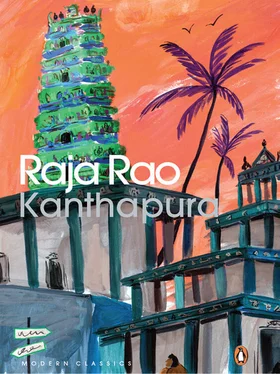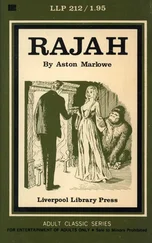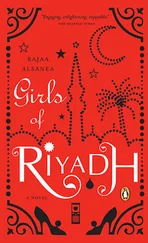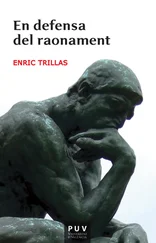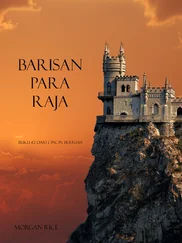Raja Rao - Kanthapura
Здесь есть возможность читать онлайн «Raja Rao - Kanthapura» весь текст электронной книги совершенно бесплатно (целиком полную версию без сокращений). В некоторых случаях можно слушать аудио, скачать через торрент в формате fb2 и присутствует краткое содержание. Год выпуска: 2014, Издательство: Penguin, Жанр: Классическая проза, на английском языке. Описание произведения, (предисловие) а так же отзывы посетителей доступны на портале библиотеки ЛибКат.
- Название:Kanthapura
- Автор:
- Издательство:Penguin
- Жанр:
- Год:2014
- ISBN:нет данных
- Рейтинг книги:3 / 5. Голосов: 1
-
Избранное:Добавить в избранное
- Отзывы:
-
Ваша оценка:
- 60
- 1
- 2
- 3
- 4
- 5
Kanthapura: краткое содержание, описание и аннотация
Предлагаем к чтению аннотацию, описание, краткое содержание или предисловие (зависит от того, что написал сам автор книги «Kanthapura»). Если вы не нашли необходимую информацию о книге — напишите в комментариях, мы постараемся отыскать её.
Kanthapura — читать онлайн бесплатно полную книгу (весь текст) целиком
Ниже представлен текст книги, разбитый по страницам. Система сохранения места последней прочитанной страницы, позволяет с удобством читать онлайн бесплатно книгу «Kanthapura», без необходимости каждый раз заново искать на чём Вы остановились. Поставьте закладку, и сможете в любой момент перейти на страницу, на которой закончили чтение.
Интервал:
Закладка:
And we all sit in the hall, and Subbayya’s wife, Satamma, says, ‘Oh, take only this much milk, Aunt! — Oh, only this banana, Aunt! — Just this handful of puffed rice!’ and we are so tired that we say, ‘Yes, yes.’ And people come from the Potters’ quarter and the Weavers’ quarter and say, ‘We came to give you welcome. So it’s you who fought the police!’ and an old woman comes to the door and says, ‘Learned sir, I hear there are some pilgrims come, and I have a new calved cow, and I can offer fresh milk to the pilgrims,’ and this way and that, milk and syrup and puffed rice and coconuts are offered and we tell them each our story and they say, ‘Oh, poor Mother — oh, poor Mother,’ and we get courageous and say, ‘But that is what we should do to drive the British out!’ Then, when we get up to go, lantern after lantern is seen in the courtyard, and everybody says, ‘We shall follow you up to Kanthapura. One never knows these days. Why, only this morning we found elephant dung at the temple corner.’ And they gave us new carts, and beadles walked in front of us, lanterns in their hands, and before them walked Iron-shop Imam Khan, gun in hand and fire in his eyes, and our carts clattered and creaked through the dense, droning night, by the Gold-mine hill and Siva’s gorge and up the Menu crag and down again to the valleys of the Himavathy, where lies Kanthapura curled like a child on its mother’s lap. And when the carts had waded through the still, purring waters of the river and the bulls crunched over the sands of the other bank, we said, ‘Here we are,’ and mother and wife and widow-godmother went up to their lighted, lizard-clucking homes. And when the wounds were washed and the bandages tied, we lay upon our beds, and it seemed as though the whole air was filled with some pouring presence, and high up, from somewhere over the Skeffington Coffee Estate and the Kenchamma hill and the Himavathy, night opened its eyes to let gods peep through the tiles of Kanthapura. Sister, when Ramakrishnayya and Satamma returned from their pilgrimage, what did they say? They said, in Kashi, when the night fell, gods seemed to rise from the caverns of the Ganges, to rise sheer over the river, each one with his consort, and each one with his bull or peacock or flower throne, and peep into the hearts of pilgrim men. May our hearts be touched by their light! May Kenchamma protect us!
The next morning, with bell and camphor and trumpet, we planted our trophies before the temple. Five twigs of toddy trees were there, and a toddy pot. Venkamma of course said, ‘Look, look, a toddy god have they made of a moon-crowned god,’ and she spat on us and called us the toddy people. Yes, yes, sister, we are toddy people! But we don’t marry our daughters to gap-toothed sons-in-law. Nor like Bhatta do we go on Kashi pilgrimage with toddy contract money. Do we?
15
The following Tuesday was market day in Kanthapura, and we had risen early and lit the kitchen fires and had cooked the meals early and we had finished our prayers, and when the food was eaten and the vessels washed and the children sent with the cattle — for this time they wouldn’t come with us — we all gathered at the temple, and when Seenu had blown the conch and lit the camphor, we all marched towards the Kenchamma grove, and the cattle sellers stopped their cows and calves to see us, and the oil women put down their oil jugs and asked, ‘Where are you going, brothers and sisters?’ and old Nanjamma who could never hold her tongue says, ‘Why, to picket toddy shops,’ and Moorthy cries out, ‘Silence! Silence!’ and the cartmen pull aside the bulls and jump out of the carts to see the procession pass by, and when we are by the Skeffington Coffee Estate, Betel Lakshamma, who sells flowers for the Kenchamma worship, is there and she says to Moorthy, ‘And you are the soldiers of the Mahatma? And it’s you who defied the police?’ and Moorthy smiles and says, ‘Yes, Mother,’ and she says, ‘Then you’ll free us from the revenue collector?’ and Moorthy says, ‘What revenue collector?’—’Why, Raghavayya, the one who takes bribes and beats his wife and sends his servants to beat us,’—and Moorthy does not know what to answer and he says, ‘We are against all tyrants,’ and she says, ‘Why, then, come to our village, son, and free us from this childless monster,’ and Moorthy says, ‘We shall see,’ and she says, ‘We ask you to come,’ and Moorthy says, ‘I shall write to the Congress and if they say yes, I shall come,’ and then old Lakshamma, who is a very clever woman, she says, ‘Let us garland you,’ and Moorthy cries out, ‘No, no,’ but she says this and that, and garlands him and says, ‘You are my Lord, and though I saw you like a rat on your mother’s lap, I knew you’d do great deeds and bring a good name to the Himavathy.’ And when old Madanna of the banana shops sees this, he stops his bulls and tears a few bananas from the banana bunch and he offers them to Moorthy and Moorthy says, ‘May the country bless you, Madanna.’
And we march on and on, winding up the Karwar road to the Kenchamma grove, and at every step there are corn people and puffed-rice and Bengal-gram people and bangle sellers and buttermilk people and betel-leaf people, and they stop us and say, ‘Take this, take this, Mahatma’s men!’ And then suddenly a car comes hooting down the valley and they say, ‘Perhaps the Taluk magistrate?’—’Perhaps the collector sahib?’—’Perhaps the planter sahib?’—and they are so frightened that they jump over the gutters and slip behind the trees and the car rushes past us and we see a Red-man’s face and a Red-man’s beard and a Red-man’s hat, and people say, ‘Why, that’s the good Solpur Padre!’ and Ratna says, ‘No, no,’ but Moorthy cries out, ‘Silence, please,’ and we grow dumb. And the nearer we come to the fair the larger is the crowd behind us, and our hearts beat hard, and when we are by the Kenchamma grove, Moorthy says, ‘One man or woman at every arm’s length,’ and seventy-seven in all we stand by the Kenchamma grove and up the Skeffington Road, one man or woman at every arm’s length and Moorthy stood over the Monkey’s bridge, with Ratna and Rangamma beside him, and across the rivulet, on the dry meadow crouched the toddy booth, but the police were already there.
We had never stepped upon the Coffee Estate road, and each time the cart passed by the Kenchamma grove, in secret fear we would never look towards it. And we imagined the sahib standing here, standing there, by the Buxom pipal tree, by the Ramanna well, and we thought there he’s looking for a woman, he’s behind the aloes there. And the leaves would flutter and there would be a cough or sneeze, and our limbs would tremble and we would look away to the Kenchamma grove, and sometimes, when on a morning a cow or a calf strayed over the Skeffington road, we cried out, ‘Hey-Hey,’ from the main road and we waited for a Pariah to come and we sent him to drive it home. And today, as we stood on the Skeffington road, broad and bright with the margosa trees that lined it to the iron gate, where two giant banyans hovered from either side, as we looked up the hill, up the twisted road and past the trees to the porch and the stables and the bamboo nettings of the bungalow, a shiver ran down our backs, and we all wondered how Moorthy could stand so near the gate. And yet Moorthy was calm and talking away, waiting for the first coolie to come out, the first coolie who would come out with his week’s earnings at his waist, and go straight to the toddy booth; and we waited and waited. Vasudev had told us it was Pariah Siddayya who would lead them out, and we looked this side and that, and we said, ‘They’re coming! They’re coming!’ and we looked at the Estate trees, high and lean and protective, and the little coffee shrubs beneath, and there were birds in them and wind and darkness, and as the sky was growing cloud-covered, we said, ‘Now it is going to rain and the people will not come out,’ and yawning and perspiring we look away towards the market where people are hurriedly putting up their shops, the pegs are hammered in and the tents stretched out and the carts are emptied and the bulls wave their heads and flap their ears to drive away the flies, and then one by one they kneel and flop down for a comfortable munch — and donkeys bray and pigs snort and the Padre’s voice comes curling up the tamarind tree with pancake smoke from Puttamma’s frying pan, and there is music with the Padre’s voice and it is tambourine music and band music, and the cymbals beat, and people gather and the Padre sings on and on in Harikatha, while carts come round the Kenchamma hill and people come behind them, and when they see us they come near us and they talk to Moorthy, and Moorthy explains to them why we are here and they say, laughing, ‘Why, you will never stop a man drinking!’ and others say, ‘Ah, you are like that Padre there talking of drink and sin.’ Yet others say, ‘You are right, learned sir, but if you put a dog on the throne, he’ll jump down at the sight of dirt; thus we are,’ but Moorthy says, ‘No, no, you cannot straighten a dog’s tail but you can straighten a man’s heart.’
Читать дальшеИнтервал:
Закладка:
Похожие книги на «Kanthapura»
Представляем Вашему вниманию похожие книги на «Kanthapura» списком для выбора. Мы отобрали схожую по названию и смыслу литературу в надежде предоставить читателям больше вариантов отыскать новые, интересные, ещё непрочитанные произведения.
Обсуждение, отзывы о книге «Kanthapura» и просто собственные мнения читателей. Оставьте ваши комментарии, напишите, что Вы думаете о произведении, его смысле или главных героях. Укажите что конкретно понравилось, а что нет, и почему Вы так считаете.
